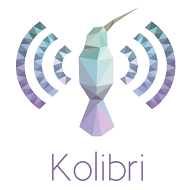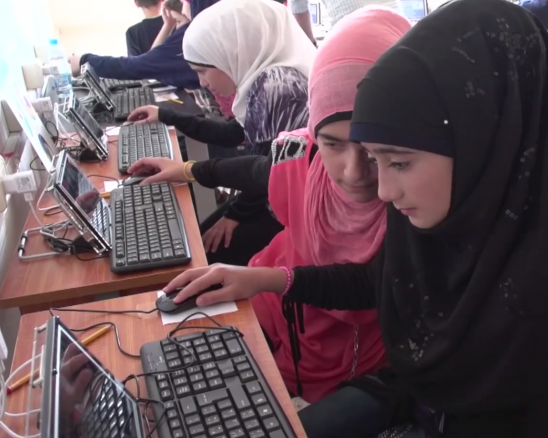Beyond The Edge Of The Internet: Learning Equality Crowdsources Funding for Universal Offline Education
San Diego, Calif., Dec. 4, 2015 -- If you’re reading this online, you’re in the minority. Even with seemingly ubiquitous connectivity, 60 percent of the world’s population still lacks Internet access, and one out of every three children has no access to quality education.
Driven by a desire to help students anywhere learn anytime, developers at Learning Equality -- a foundation based at the University of California, San Diego Qualcomm Institute -- have launched a Generosity.com crowdfunding campaign to develop and deploy Kolibri, a free app that will provide universal primary school education offline for learners without Internet access. The $250,000 campaign runs through the end of December, and each dollar donated will be used to develop the product, establish partnerships, and support deployments. By 2018, the non-profit aims to reach 10 million learners worldwide, including children in low-resource schools, orphanages and those displaced by refugee crises.
Kolibri provides students and teachers with access to high-quality education aligned to local curricular standards without the need for an Internet connection. By enabling peer-to-peer distribution to remote communities via low-cost devices like a Raspberry Pi single board computer and low-cost Android tablets, the team of UC San Diego researchers aims to break the vicious cycle of poverty and lack of education.

Learning Equality began three years ago with the launch of KA Lite, an app that provides offline access to Khan Academy’s educational videos and interactive exercises. The app has already benefited millions of learners in over 160 countries. “We don’t want to stop there,” stated non-profit cofounder Jamie Alexandre. The nonprofit is excited to take the next big leap with Kolibri by “empowering users to create and share their own lessons.”
“From the beginning, we’ve had a vision that Kolibri won’t just be Khan Academy content,” said Alexandre. “We want to support the integration of local content, and create a system for sharing a broad set of diverse knowledge in a seamless way, leveraging low-cost hardware.”
One of Kolibri’s innovative features is a video compression algorithm that compacts hundreds of gigabytes of content to a hundredth of the size without compromising quality. This not only streamlines distribution of new content and updates, but also allows teachers to create customized ‘voice and blackboard’ videos to view on low-power and low-cost hardware (Kolibri is designed to run on any device or platform, from Windows to Linux to Android).
The hardware will also feature a peer-to-peer “device discovery” interface that enables teachers to collect student data and explore detailed reports of student learning, achievement, and struggles, so that they know how best to intervene. These reports would also be used in conjunction with supplemental content on Kolibri to design curricula unique to students’ specific needs.
Although some forecasters anticipate that the world will achieve universal Internet access within the next decade, Alexandre call such predictions optimistic, with Internet penetration still less than 10% in the world’s 48 poorest countries, and global Internet growth actually slowing.
“One of Learning Equality’s core values is being proactive,” he added. “The Internet will take the longest to get to the people who are most left behind. If we can find a way to bring education to these communities now, they will be ready when global connectivity does arrive, so that they won’t be left behind for whatever iteration of inequality exists in the coming decades.”
Learn more and support the Kolibri campaign here. Learning Equality is also currently recruiting for several full-time positions, and has a quarterly internship program, so there are many ways to get involved.
Related Links
Media Contacts
Tiffany Fox
(858) 246-0353
tfox@ucsd.edu
